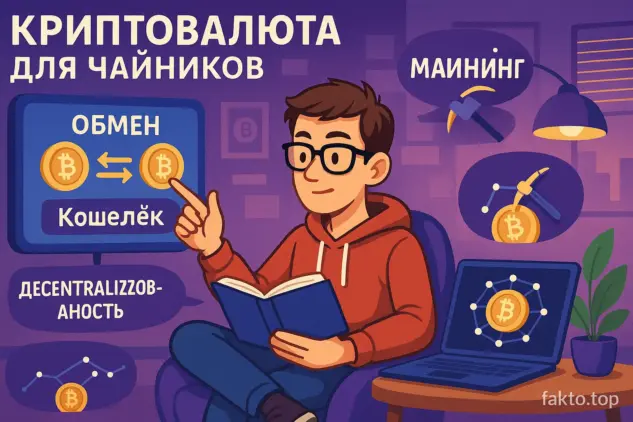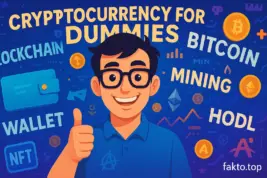Crypto for Beginners: What Is Cryptocurrency in Simple Terms
not everything clicks right away for everyone
Crypto Explained in Plain English: What Beginners Really Need to Know
Let’s be real: diving into crypto feels like jumping into the deep end of a pool with your clothes on. You’ve probably heard about Bitcoin, maybe even NFTs, and maybe your buddy won’t shut up about “hodling to the moon.” But what does it *really* mean? At its core, cryptocurrency is just money that lives 100% online. No physical bills, no banks — just code, blockchain, and a whole lot of hype.
The first big player was Bitcoin, launched in 2009 by the mysterious Satoshi Nakamoto. That coin didn’t just start a trend; it cracked open an entirely new financial era. Today, thousands of coins exist, each with their quirks, promises, and risks. For beginners, it’s less about knowing everything at once and more about getting comfortable with the basics.
Crypto runs on **blockchain**, which you can picture as a massive digital notebook where every transaction is permanently recorded. New coins appear through **mining**, where computers solve puzzles in exchange for fresh tokens. Sounds complicated? Don’t worry — even pros once googled “what is Bitcoin” at 2 AM.
To hold coins, you’ll need a **crypto wallet** (think of it as your personal bank vault app or device). To buy and sell them, you’ll go through a **crypto exchange**. From there, the fun — and sometimes the stress — begins.
Crypto offers plenty of ways to make money: **copy trading** (mirroring pro traders’ moves), **arbitrage** (earning from price differences), **NFT flipping**, staking, DeFi lending… the list goes on. Just start simple, keep your nerves steady, and never invest your rent money.

Digital Money: Why It Actually Matters
Digital money isn’t a sci-fi thing — it’s here. Unlike cash, it doesn’t exist in physical form, making it perfect for global payments and online transfers. **Crypto is one type of digital money**, built on cryptography for extra security.
The beauty? You don’t need banks. Transactions are peer-to-peer, often cheaper and faster than wire transfers. Millions already use crypto daily, from freelancers in the U.S. to merchants across Asia. It’s not fringe anymore — it’s financial reality.
Blockchain: Trust Without Middlemen
Blockchain is the engine under the hood. Every transaction is locked in a block and chained to the next, making it transparent and nearly impossible to tamper with. No single entity controls it, which is why it’s considered hack-resistant. Beyond crypto, blockchain powers logistics, healthcare, and even government services.
Bitcoin (BTC): The OG Digital Gold
Bitcoin isn’t just another coin; it’s the original gangster of crypto. With a fixed supply of 21 million coins, it’s often called **“digital gold.”** You can use it to pay for goods, send money abroad, or stash it as an investment. For beginners, Bitcoin is the safest entry point — liquid, recognized, and time-tested.
Altcoins: Beyond Bitcoin
Altcoins are every coin that isn’t Bitcoin. Ethereum, Solana, Ripple, Dogecoin — each has its own features. Some enable **smart contracts** and **dApps**, others just want faster, cheaper payments. Warning though: altcoins are way more volatile. Gains can be massive, but so can losses.
Mining: Where Coins Are Born
Mining is like digital gold digging. Powerful rigs solve math problems, verify transactions, and mint new coins. Beginners don’t need to buy a warehouse of GPUs anymore; mining pools or staking alternatives exist. But understanding the basics of mining helps you see how blockchain security really works.

Crypto Wallets: Guard Your Keys, Guard Your Life
A wallet isn’t just storage — it’s your lifeline. Lose your private keys, and your coins are gone forever. There are mobile apps, hardware wallets, and browser-based solutions. For starters, choose a reputable, user-friendly wallet and always back it up.
Exchanges: Where the Action Happens
Exchanges are marketplaces where you buy, sell, or trade crypto. Think of Coinbase, Kraken, or Binance. Beginners should pick exchanges with strong security and easy interfaces. Start small, learn to place simple buy/sell orders, then move to advanced stuff.
Quick Breakdown for Newbies
| Concept | Plain English | Pro Tip |
|---|---|---|
| Bitcoin | First crypto, “digital gold” | Best starter coin |
| Altcoins | Any coin that isn’t Bitcoin | High risk, high reward |
| Wallet | Your digital bank account | Never share private keys |
| Exchange | Online marketplace | Stick to licensed ones |
| Mining | Creating new coins via computers | Not beginner-friendly |
FAQ for Beginners
- Do I need a ton of money to start? Nope. You can buy fractions of coins, even $10 worth of Bitcoin.
- Can I lose everything? Yes — if you ignore security or ape into shady projects. Manage risk.
- Is crypto legal in the U.S.? Yes, but regulations vary by state. Always check before diving in.
- How do I avoid scams? Never trust random DMs, double-check URLs, and use two-factor authentication.
- Is mining worth it? For most beginners, no. Focus on learning wallets and exchanges first.
Tokens, Smart Contracts, DeFi & NFTs
Tokens run on platforms like Ethereum and can represent shares, voting rights, or in-game assets. **Smart contracts** automate deals without lawyers or middlemen. **DeFi** lets you lend, borrow, and invest without banks. And NFTs? They’re digital collectibles, from memes to million-dollar art.
Stablecoins: Calm in the Storm
Stablecoins like USDT or USDC are pegged to the dollar. They don’t swing wildly like Bitcoin, making them perfect for beginners testing the waters without panic-checking prices every 10 minutes.
By now, you’re no longer a total newbie — more like a crypto freshman who knows the ropes. You’ve met Bitcoin, peeked at altcoins, and learned why wallets and exchanges matter. The key? Don’t rush. Even crypto OGs once fumbled with their first wallet backup.
Remember: knowledge compounds. Today you’re just getting started, tomorrow you’ll be reading charts, setting stop-losses, maybe even explaining to a friend why “HODL” isn’t a typo. Your journey has officially begun.